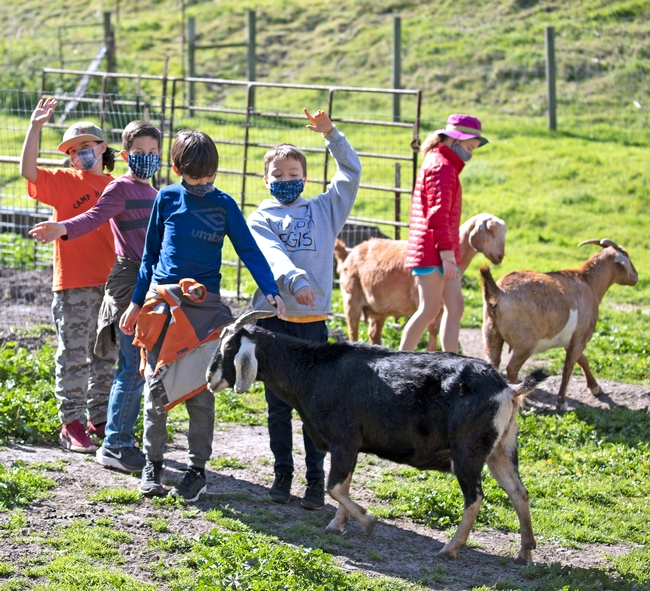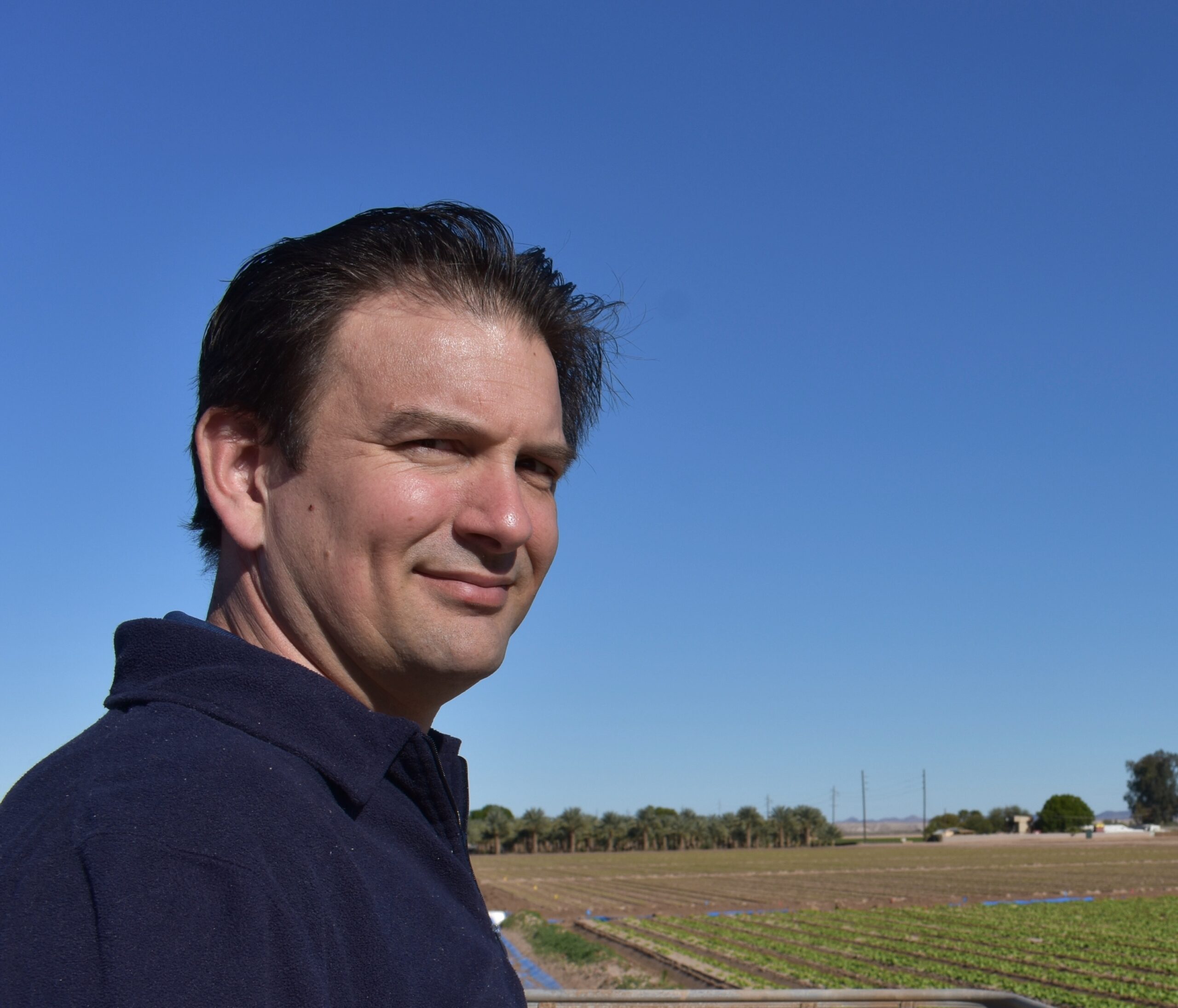
‘I wish this was my school’: Young Students Get Hands-on at Elkus Ranch
By Pam Kan-Rice UCANR Assistant Director, News and Information Outreach
Curious goats milled around the masked elementary school students who were raking out the livestock stalls. After a year of social distancing due to COVID-19 precautions, the goats were enthralled by the youngsters who visited UC Agriculture and Natural Resources’ Elkus Ranch Environmental Education Center in San Mateo County.
“The animals were missing kids, they’re used to getting more loving,” said Beth Loof, 4-H youth community educator at Elkus Ranch. “Goats are really social. They get distressed when they are alone.”
Tucked behind the rolling green hills of Half Moon Bay off state Route 1, Elkus Ranch is a working landscape that, in a normal year, hosts people from all over the San Francisco Bay Area for field trips, conferences, community service projects, internships and summer camps.
During the pandemic, UC ANR has limited visitors to “social bubbles” of children and adults for outdoor education at the 125-acre ranch, which has implemented a variety of COVID protocols for the safety of visitors. During Adventure Days, young people spend four hours caring for animals, tending gardens, making a nature-themed craft project and hiking around the property.
“We would love to bring children from urban areas of the Bay Area to Elkus Ranch,” said Frank McPherson, director of UC Cooperative Extension for Alameda, Contra Costa, San Mateo and San Francisco counties. “So they can learn where food comes from, before it gets to the grocery store.”
On a sunny spring day, 11 students from Share Path Academy in San Mateo visited for Adventure Day, as their first field trip of the year.
“Coming here and having the hands-on learning, being able to hold objects, touch objects, interact with things, it’s all part of learning,” said Erin McCoy, a Share Path Academy teacher. “In science, you can talk about certain things in classes, but when you come out here and you actually apply it to what they’re doing and it’s tactile for them, at this age, it’s really important.”
The group – composed of McCoy, nine fifth-graders, a fourth-grader, a sixth-grader and a couple of parents – spent the day outdoors petting the donkeys, goats, chickens, rabbits and sheep and learning about the animals that live at Elkus Ranch.
“I think it’s been a great opportunity for our children to be outdoors and to enjoy nature, to reconnect with the environment – animals, plants, just the outdoors,” said parent Christina Cabrera. “It’s great for the children and the adults accompanying them.”
Inside the barn, Loof invited the students to sit on straw bales – not the hay bales, which are food for the livestock. She showed the students how wool that is sheared from sheep’s coats is spun into yarn. First, they carded the wool. “You’re going to card it like this. It’s like brushing your hair, but it has a little resistance so it can be a workout,” Loof said, cautioning the students wearing shorts to be careful not to brush their skin with the sharp, wire teeth of the tool. “Get all the fibers nice and flat, lined up, going one way. Fibers are what we call all the strands of wool.”
“This place is awesome.”
After twisting the wool by hand into yarn, the students fashioned the natural-colored fuzzy strands into bracelets.
“We love Elkus,” said McCoy, whose son has attended summer camp at the ranch. “This place is awesome.”
Taking a break for lunch, the group walked down the dirt path from the barn past the livestock pens to wash their hands, then sat at primary-colored picnic tables to eat next to a garden.
After lunch, the students exercised their creativity with buckets of clay to mold into animals or roll out and cut with cookie cutters.
In the chicken coop, Loof, who is one of four community educators who work at Elkus Ranch, shared animal science facts such as, “Eggs are viable for two weeks after the hen sits on them in the nest.” She also told funny stories such as how Dora, the white bantam, escaped the coop and ate all the chard in the garden.
“I wish this was my school,” said one student as he held an egg-laying chicken.
The visit ended with a garden tour and a game of hide and seek among the raised beds of onions, squash and other vegetables.
“Being outdoors is an important counterbalance to being on a computer,” said Cabrera, who is also a San Mateo High School wellness counselor. “It’s a great addition to what we’re doing. Just to be with animals.”
Elkus Ranch is still offering Adventure Days for children; the cost is $425 for 10 people. Small groups are also invited for 90-minute visits.
“If all goes well, we plan to offer a three-day mini-camp on Monday through Wednesday of Thanksgiving week,” said Leslie Jensen, Elkus Ranch coordinator.
For more information about Elkus Ranch activities, visit ucanr.edu/adventure or contact Jensen at LKJensen@ucanr.edu.
UC Agriculture and Natural Resources brings the power of UC to all 58 California counties. Through research and Cooperative Extension in agriculture, natural resources, nutrition, economic and youth development, our mission is to improve the lives of all Californians. Learn more at ucanr.edu and support our work at donate.ucanr.edu.

